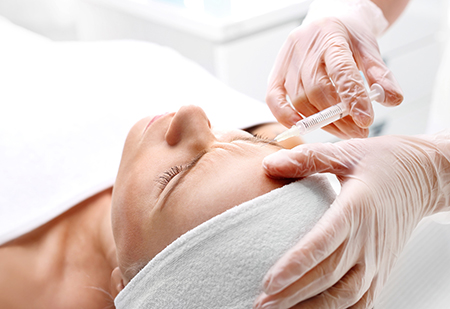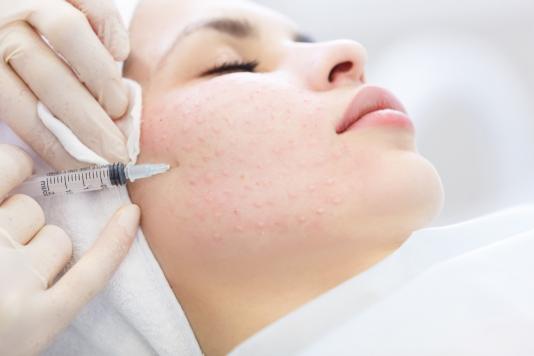Everyone who follows the lives of Polish and world stars has heard about vampire lifting for a long time. Well-known celebrities are happy to show their photos taken right after the procedure and boast of its wonderful effects. Unwilling, it is thanks to them that the vampire facelift enjoys increasing popularity and interest. Is the admiration for the procedure for which platelet rich plasma is used justified?
What is platelet rich plasma?
The bloody name of the procedure is due to the blood from which platelet rich plasma used during therapy is obtained. Plasma is centrifuged from the blood taken from the person undergoing surgery. The plasma contains natural nutrients that regenerate tissues in the body by stimulating the cells. Plasma has long been used in orthopedics, dentistry and ophthalmology. Due to its properties, plasma treatment has also been recognized in cosmetic medicine. It enjoys great success in rejuvenating and regenerative therapies. The phenomenon of platelet rich plasma is the inhibition of aging. It increases the amount of collagen, renews the skin and connective tissue, it can also repair age-related changes, scars and sun damage.
Rejuvenating properties work great on flabby and thin skin. Due to the fact that plasma is obtained from the patient’s blood, it is absolutely certain that it is a completely safe. Natural preparation that does not cause any disease or infection. It is not enriched, in itself it is sufficiently saturated with all nutrients.
What is a vampire facelift?
At the beginning of the procedure, a small amount of blood is collected from the patient. Then it is centrifuged in a special centrifuge. In this way, platelet rich plasma is used, which is used further in the procedure. Immediately after preparation, plasma is injected into the appropriate skin structures. Before the procedure, the face is anesthetized with a special cream to reduce pain to a minimum. The procedure is not painful, it is only a little unpleasant and causes discomfort. Vampire lifting can be applied to different areas. The whole face or selected parts of it, cleavage, hands and other parts of the body that we want to regenerate.
And the effects?
The effects will surprise us after the first treatment. Plasma improves skin tone, rebuilds it and increases its density. Also: heals acne scars, makes the skin smooth, even and visibly rejuvenated. However, to obtain the best effect, it is worth to repeat the treatment 2-3 times at intervals of several months. The improvement of the skin condition results from deep regeneration. It is an investment in your appearance, which will improve over time. It is worth noting that the platelet-rich plasma treatment does not change facial features or facial expressions.
Thanks to its anti-inflammatory and antibacterial properties, it creates some kind of protection on the skin. Satisfactory appearance is primarily a good mood, greater confidence and increased self-esteem. Vampire lifting allows you to achieve all these effects.
How often do you repeat the treatment?
Although there is no single standard for platelet-rich plasma therapy, there is usually a certain age-related time frame. Thus, in people under 35 years of age plasma is used as a prophylaxis for skin aging and one treatment for 12-24 months is enough. For people between 35 and 45 years of age, it is recommended to repeat the procedure after 9-12 months. The older the patient is, the more frequently they should be performed to keep their appearance younger. Thus, after 60 years of age, plasma is administered 3, 9 and 18 months after the first treatment.
It’s safe to say that vampire facelift is not just a temporary fashion. In fact, platelet rich plasma is a phenomenal tool for both improving beauty and improving health. His worship by celebrities is therefore fully justified. Treatments using platelet rich plasma are the best, most effective, and at the same time fully natural and safe form of appearance improvement. Undoubtedly, therefore, they will permanently stay in aesthetic medicine offices, gaining a large number of satisfied patients.









